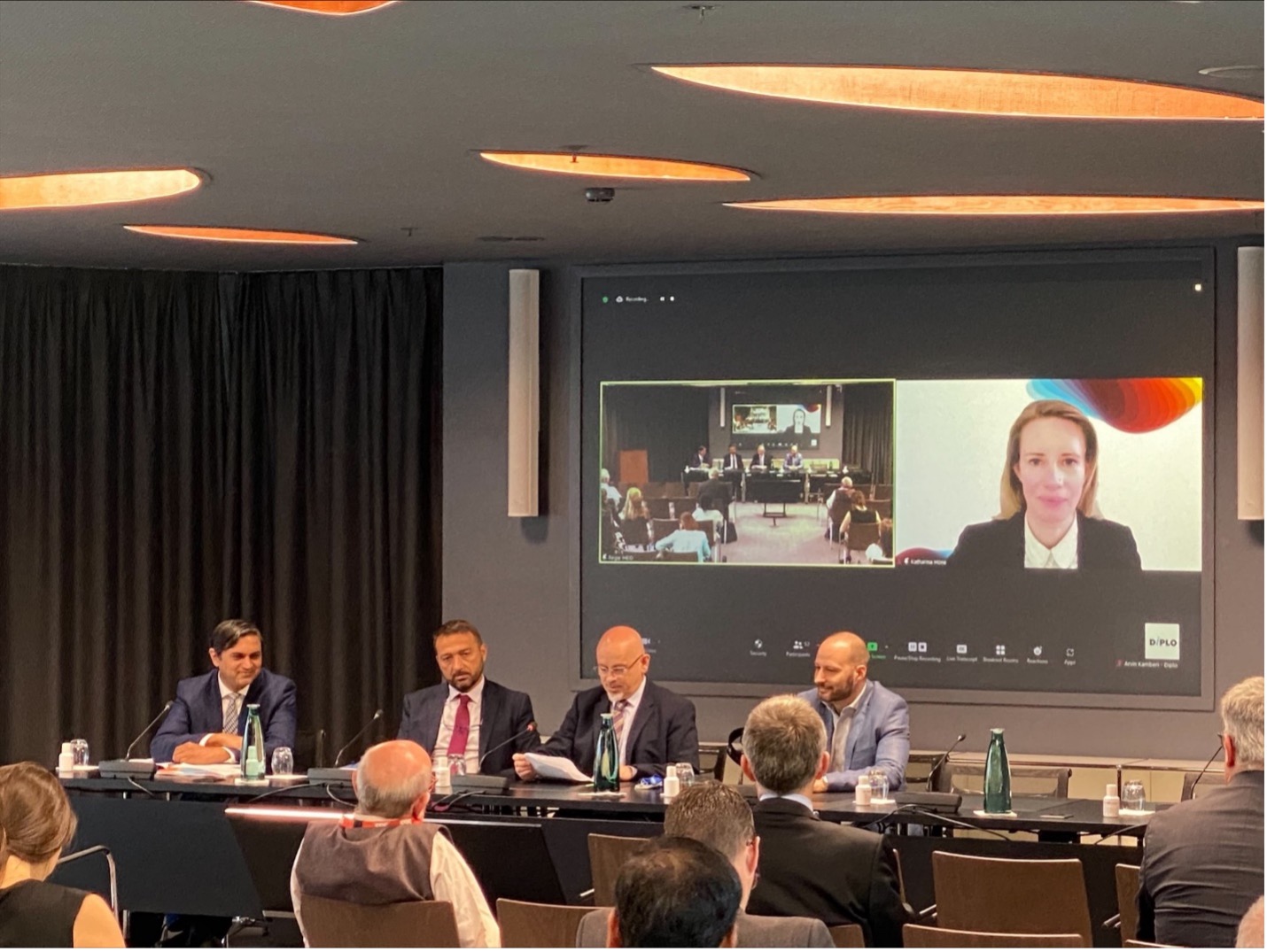UNICC’s Sameer Chauhan and Marco Liuzzi discuss AI solutions for diplomats
On 17 May 2022, Sameer Chauhan, Director, UNICC and Marco Liuzzi, Chief, Operations Division, UNICC spoke at the ’AI as a Tool for Diplomacy and Mediation’ event as part of this year’s Science Diplomacy Week to discuss Artificial Intelligence (AI) tools UNICC has developed and their impact on the work of diplomats, as well as the challenges UNICC faced in order to create a set of needs-oriented tools.
AI as a Tool for Diplomacy and Mediation is a hybrid event organized by the DiploFoundation as part of this year’s Science Diplomacy Week, which took place in Geneva from 16 to 20 May to highlight the current and potential future uses of Artificial Intelligence (AI) as a tool for diplomatic practice and peace mediation. The discussion detailed various applications of AI, in particular in the areas of natural-language processing and image recognition.
Panelists included Dr. Jovan Kurbalija, Executive Director, Diplo and Head, Geneva Internet Platform (GIP); Dr. Katharina Höne, Director of Research, Diplo; Sameer Chauhan, Director, UNICC; Marco Liuzzi, Chief, Operations Division, UNICC; Jovan Njegić, Head, AI and Data Lab; and Dr Andreas Hirblinger, Postdoctoral Researcher, Center on Conflict, Development, and Peacebuilding, Geneva Graduate Institute.
During the discussion, three key questions were raised:
- What tools have been developed and demonstrated as pilot projects and what is the impact on the work of diplomats and mediators?
- How can conversations between diplomatic practitioners and developers of AI applications be facilitated in order to create tools that are needs-oriented?
- Why is this an important conversation to have now and what are some of the current and future challenges?
In a conversation guided by Dr. Jovan Kurbalija, Sameer Chauhan gave a bit of background about UNICC and answered the question of how conversations between diplomatic practitioners and developers of AI applications can be facilitated in order to create tools that are needs-oriented. He gave three use cases with AI solutions deployed and utilized for sensitive negotiations.
Sameer discussed UNICC’s support for the UN Climate Change Conference (COP 26) as a first use case, where UNICC developed an AI-based biometrics solution to register over 50,000 delegates worldwide in a short period of time and in a way that minimizes the bias of certain parts of the world where delegates could not be registered. The second use case was analyzing documents where UNICC had to assess a massive number of documents produced in different languages. And the final use case was real-time sentiment analysis on social media for large human rights conferences.
Marco Liuzzi shared with the audience the challenges of AI technology and he focused on the major challenge of the issue of bias and what can be done to avoid that bias from becoming embedded in the AI algorithm. He also shared UNICC’s approach when delivering AI solutions to its Clients and the risks and concerns when AI is applied to specific fields where there is a high impact like diplomacy.
We at UNICC hear our Clients in the sense that the solutions we are providing are needs-based solutions and I think this is very useful in the context of AI. There are these qualitatively new technologies like Machine Learning that we can always refine and make practical for the needs of the UN system and for all diplomats.
Marco Liuzzi, Chief, Operations Division, UNICC
Watch the full stream of the event

